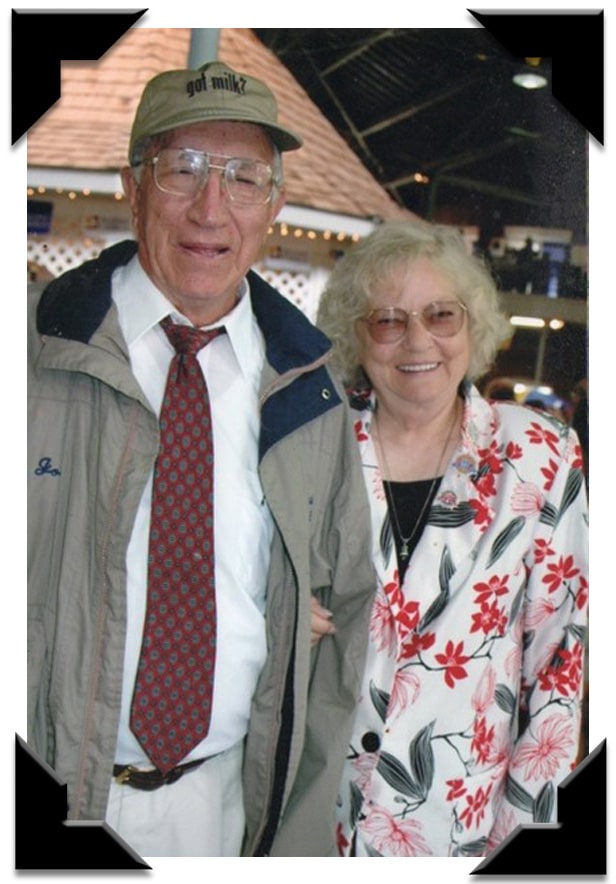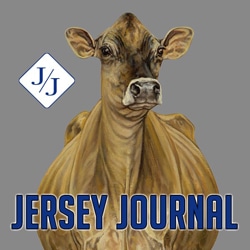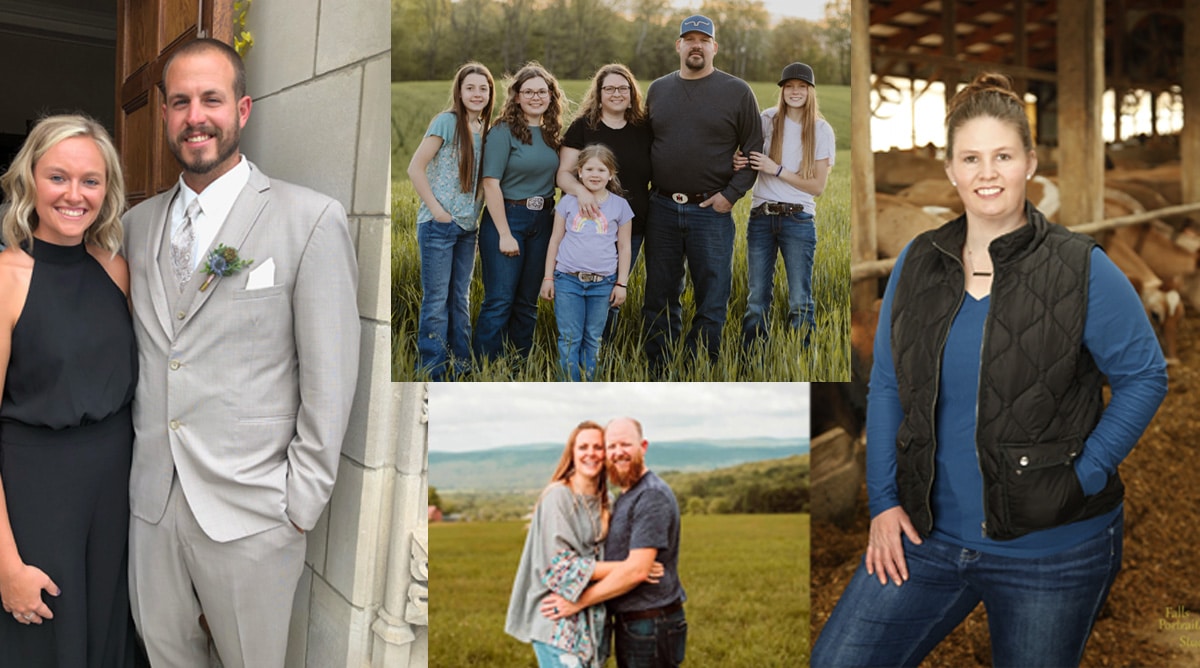Jersey Leader Joe Lyon Passes at 92
The Jersey breed lost one of its leading patriarchs on January 22, 2021, with the passing of Gaylord Joe Lyon, Toledo, Iowa, at the age of 92.
Lyon was the third son of the late Earl Lyon and Helen “Nellie” Zmolek Lyon, born on November 10, 1928, in the farmhouse that was his residence nearly his entire life. It was here he and his late wife, Duffy, raised their family of nine children and was his home until November 2020, when he moved to an assisted living facility to convalesce a broken hip.
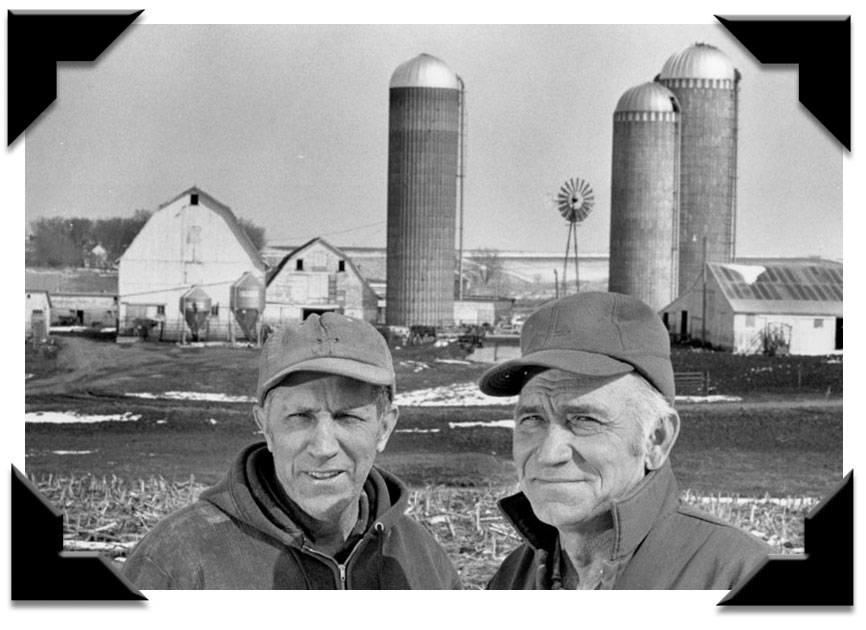
Well-respected, Joe was known as a “Dairyman’s Dairyman” in industry circles. His words carried weight in everything he undertook. He was the sole Democrat appointed by President Ronald Reagan on the inaugural National Dairy Board in 1984. As chair of that entity’s Product Research Committee, he played a significant role in the establishment of dairy research centers across the country.
Lyon received the Distinguished Service Award from the American Jersey Cattle Club (AJCC) in 1987, was named Man of the Year by World Dairy Expo in 1982 and was the Guest of Honor at the banquet held by National Dairy Shrine in 1991. Lyon Jerseys LLC, the Registered Jersey dairy he operated with his son, Eric, and nephew, Stuart, earned the Jersey breed’s highest award―Master Breeder―in 2015. Joe is past president of both the AJCC and National All-Jersey Inc. (NAJ).
Achievements aside, Joe was usually found, daily, doing the job he loved: milking his own cows.
I challenge you to show me any check off from your milk check that has come anywhere close to the return you get for your two cents Equity check-off. If you are on Equity, stay on. If not, think it over. You need us. We need you.” G. Joe Lyon, to members attending Celebration of Project Equity, held during the 2016 AJCA-NAJ Annual Meetings in San Diego, CA.
Joe started school at Howard Number 7 Country School. He attended Iowa State University (ISU) in Ames, Iowa, where he met the late Norma Duffield Stong. The two married in St. Thomas Aquinas Church in Ames on July 22, 1950. They received their undergraduate degrees the following year and then returned to Toledo to farm with his dad and brother, Howard, and milk a herd that was predominantly Jerseys. Today, the farm is owned and operated by the third generation as a Century Farm, a designation achieved in 2017.
In the early days, the show circuit beckoned young Joe, as he traveled cross country by rail with the Lyon Jerseys show string. The herd came into prominence in 1958, when the underdogs cleaned house at the National Dairy Cattle Congress in Waterloo, Iowa. They exhibited the Grand Champion and won both Premier Breeder and Premier Exhibitor, outscoring the prominent, millionaire-owned show herds of the day.

Joe also judged many cattle shows throughout his life, domestically and in the United Kingdom and Australia. Among his fond memories was shaking the hands of Queen Elizabeth II when he judged abroad and toured her farm on the Isle of Jersey. To date, Joe and Eric are the only father and son to have judged The All American Jersey Show, in 1988 and 1998, respectively.
From a humble herd of 4-H projects, Joe and his brothers and cousins developed a herd respected among their peers, not just for their performance in the show ring, but for solid production and deep pedigrees as well. The herd was enrolled on breed performance and type programs from 1961 until the last cow was sold in 2018.
The family sold bulls to A.I. organizations, developed a thriving local market for herd sires and marketed genetics across the globe. Among the cattle that earned laurels after they sold were Lyon Renegade Barb, the reigning Jersey world fat champion, Lyon Duke Dutchy, Junior National Grand Champion in 2009, and Lyon Ajack Bay, Overall Premier Performance Winner of the All American Jersey Show in 2018. Another female, Lyon Celebrity Cece-ET, is the grandam of the most heavily used Jersey bull last year, River Valley Cece Chrome-ET.
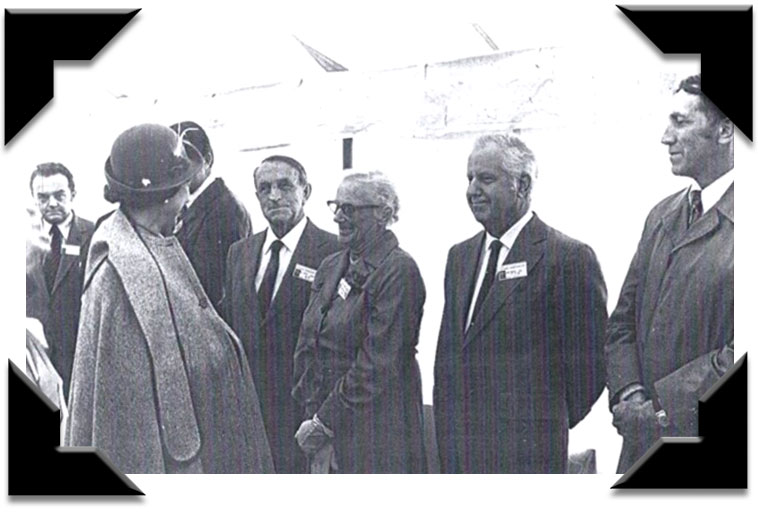
In the 1970s and 1980s, Joe used his influence to advocate for a cause dear to his heart: an equitable milk pricing system in this country. His 15-year service on the NAJ Board included eight as president (1976-1984). During his presidency, Project Equity was launched, and groundwork laid for multiple component pricing (MCP) in Federal Milk Marketing Orders. Joe spent countless hours educating others on the value of end-product pricing, enrolling herds on Equity and demonstrating its usefulness to manufacturers. In his own back yard, it was Swiss Valley Farms, the buyer of milk from the Lyon herd, that became the first cooperative to offer a protein premium. This spark led to the adoption of MCP in Federal Orders across the country and Federal Order Reform in January 1999.
My personal loyalties to the two organizations are no way divided. I have always believed that we must breed a superior dairy cows, and, at the same time, market that cow’s superior milk at a profit. The Jersey organizations are unique in that they, in tandem, pursue both objectives.” G. Joe Lyon, in his address to members at the 30th NAJ Annual Meeting in 1988.
Joe’s lifetime of leadership includes two terms as director of the AJCC (1959-1965) and three years as president (1969-1972). He was a director of National Dairy Shrine, secretary of the Iowa Jersey Cattle Club and president of the Iowa Purebred Dairy Cattle Association. He sat on the board of Swiss Valley Farms, presided over the Marshalltown Milk Producers Association, and served on various milk marketing boards and commissions. He was inducted into the Hall of Fame for the Iowa Institute for Cooperatives in 2015.
Additional accolades include the Ralph Keeling Leadership Award from the Iowa State Dairy Association in 1975 and the Richard E. Lyng Award from the National Dairy Promotion and Research Board in 2012. Joe received the Iowa Master Farmer award with Howard in 1983, following in the footsteps of their father, who earned the award in 1947.
Joe worked closely with his alma mater to promote dairy producer interests, serving on various committees. He received the Floyd Andre Award in 1984 and was admitted into the animal science department’s hall of fame in 2013. He was featured in the “Faces of Iowa State,” a portrait exhibit by artist Rose Frantzen in 2017 and now on permanent display at the Brunnier Art Museum on campus. All nine of his children achieved university degrees, seven at Iowa State and two who “wandered off the track elsewhere” he reminded them regularly.
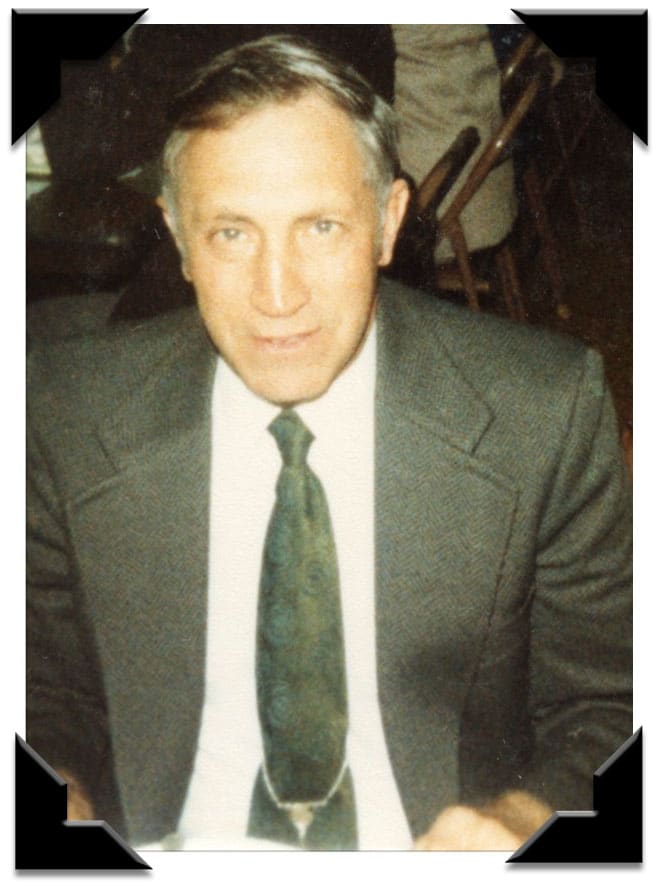

A local community leader as well, Joe volunteered with the Tama County Soil and Water Conservation District and the South Tama County School Board, where he was instrumental in building a new elementary school while also balancing the books.
Joe often referred to himself as “The Husband of the Butter Cow Lady,” proudly taking the back seat to Duffy, who gained world-wide fame for sculpting the butter cow at the Iowa State Fair for 46 years. Recently, another of Duffy’s famed pieces, a bronze of a Jersey cow and calf on a hillside near Toledo, was recreated for display on the ISU campus.
Above all, Joe valued hard work, even among his children. If chores needed to be done, extracurricular activities could wait. Despite this, he must have attended a record number of concerts, plays, recitals and sporting events of every kind over the years for his family.
In addition to his son and daughter-in-law, Eric and Theresa, he is survived by six other children, Emily Lyon (George) Hansen of River Falls, Wis., Michelle Lyon (Tim) Juhl of Greene, Valerie Lyon of Perth, Australia, Lori Lyon (Jon) Hartman of Dallas, Texas, Kurt (Jane) Lyon of DePere, Wis., Doug (Steve Loucks) Lyon of Minneapolis, Minn.; two daughters-in-law, Bonnie Hill Lyon of Newberry, S.C., and Kathy Collier Lyon of Clarence; 23 grandchildren; and 27 great-grandchildren. Also surviving is a brother, Thomas (Barbara) of Cambridge, Wis.; a sister-in-law, Margaret Lyon of Toledo; and many nieces and nephews.
He was predeceased by his older brothers, Howard and Durward, and sons, Mark and Greg.
Memorials may be directed to the family for a scholarship fund.
Historians may well say that our milk program, Genetic Recovery program, early adoption of USDA sire summaries and emphasis on plus-proven bulls were the three major reasons why Jerseys pulled away from the colored pack . . . But times do change and we must adapt to these changes.” G. Joe Lyon, in his address to members at the AJCC Annual Meeting in 1983.
